The Electrotech Revolution: Some insights into a new way of thinking about the transition
From burning old sunshine to using it in real-time.
I’m a big fan of the organisation, Ember Energy.1 They do a fantastic job of tracking changes in the electricity mix across the world, publishing open-access data not just year-by-year, but increasingly, month-by-month.
They also track a whole range of other metrics that give us insights into how the “energy transition” is going. Recently, they published a report on solar panel exports from China, showing a pretty rapid uptake in imports across Sub-Saharan Africa, a region that has huge amounts of solar potential but has lacked the capital to buy the hardware to make use of it. At least, until now.
I also think they’re doing a great job of developing a new and fresher narrative about the energy transition.
Most of the discussion on the move from fossil fuels to low-carbon energy is about tackling climate change. Quite rightly: that was the main reason I got into “this” in the first place and remains a key motivation. But that framing is very much about simply solving a problem. In reality, there is also a much more exciting change going on, one that can create opportunity and radically shift how we think about energy overall.
Ember put this forward even more strongly as what they call the “Electrotech Revolution”. Today, they published a chunky and insight-rich slide deck on how “how electrotech is rewriting the economics and geopolitics of energy”.
I recommend you take a look at the slide deck in full. If you like what I discuss in my Substack, then I have no doubts that you’ll find something interesting in there (even if there are parts you disagree with).
Here, I wanted to pick out a few of the slides that get this across conceptually. They are probably the least data-rich ones.
1. We are entering the “Electrotech age”
We’ve already experienced a series of technology shifts, from steam engines and power to electricity, petrochemicals, and digital technologies.
The shift to electrification, modular renewable technologies and artificial intelligence (more on this later) is the latest technology shift.
2. We’ve come a long way from foraging, to farming, to industrialising with fossil fuels as the main source of “energy”. Photovoltaics and electrification could be the latest steps in increasing energy availability.
Each of these transitions has unlocked energy access and improved human wellbeing outcomes. I would expect this one to do the same, perhaps even more so in some of the poorest parts of the world.
3. Burning fossil fuels is like burning old sunshine; now we can utilise the sun in real-time
We are rapidly consuming fossil fuel reserves that took millions of years to form (and are essentially stores of old sunshine; I like that framing of it). We now have technologies that allow us to use the sun in real time (and the planet receives more than we could ever possibly need every day). The question is how much of that we can really tap into and at what cost.
4. We tend to focus on how much energy is being burned or put into the system, when just a fraction of that currently delivers services and benefits to people
Most of the energy that is currently “produced” does not deliver benefits to people at the end of the chain. That’s because a lot of fossil energy is wasted. It’s interesting to, instead, look at what energy services people actually want (I’d say “need” here, but everyone has different definitions or expectations of what an acceptable “need” is) and figure out the most efficient way of delivering that.
As I've written about before, electrification delivers huge efficiency gains and gets us closer to that. This is especially true for people living in high-income countries: getting rid of a lot of waste can increase people’s energy services while reducing the total amount of energy consumed.
5. Energy is shifting from a commodity to a technology, and that means it can get cheaper
Fossil fuels are commodities. We dig them out of the ground. Here’s the thing about stuff we dig out of the ground: it rarely gets cheaper over time. This is true not just for fossil fuels but for other minerals, too. I wrote about this in an article on the Simon-Ehrlich wager earlier this year.
Part of this transition is about shifting energy from commodities to technologies. Sure, you still need minerals to build the solar panel or the battery (and those are unlikely to get cheaper), but the manufacturing of the final panel or battery itself has, and can continue to, get cheaper.
This is not true for fossil fuels: even if they don’t get more expensive, their costs will not fall significantly. Fossil fuel prices are volatile, but there is no learning curve that creates a sustained fall in cost.
6. Artificial Intelligence could help to optimise and accelerate the Electrotech age
This is perhaps the provocation that differs most from the standard climate narrative on the transition. AI is generally seen as a burden on climate and energy efforts. In an “Electrotech” vision, AI might actually help accelerate things by optimising grids and charging, project management and permitting, and the discovery of new materials.
The suggestion is that “on net” AI would reduce energy demand and losses, even if the direct demand for electricity to power AI increases. Future trends in AI are incredibly hard to predict — both in terms of increased power demand, and the benefits they might provide — but I also think this is plausible, and on net, AI could be a positive for the energy transition.
Full disclosure: I'm also on its advisory board (although they often don't need much advice from me).


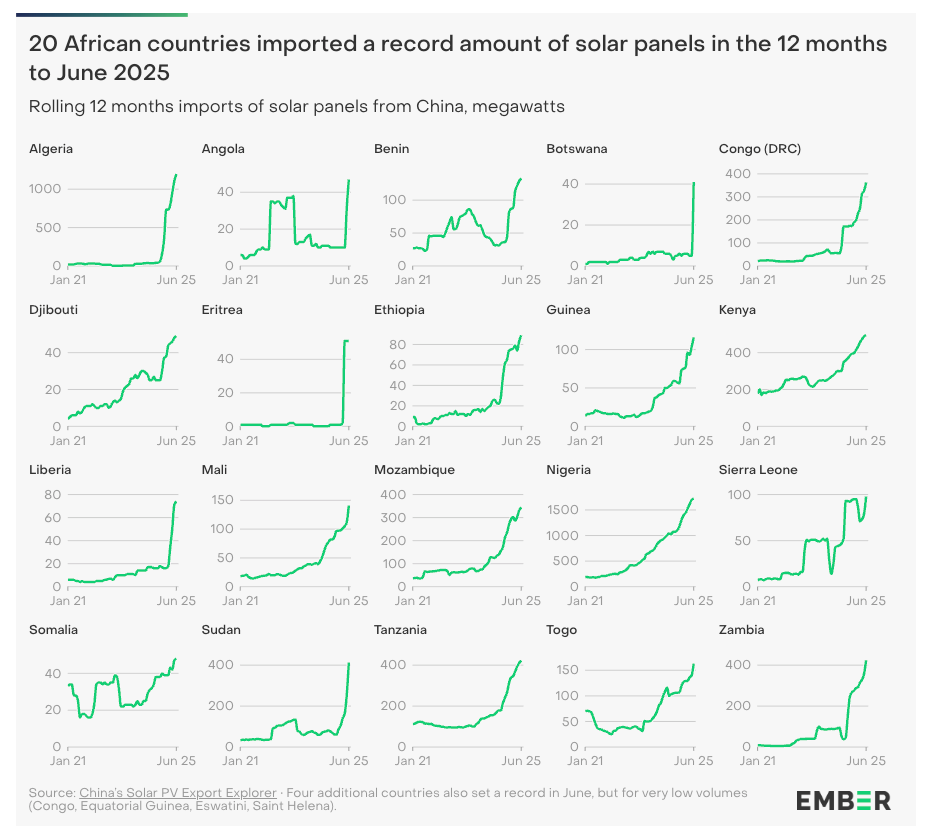
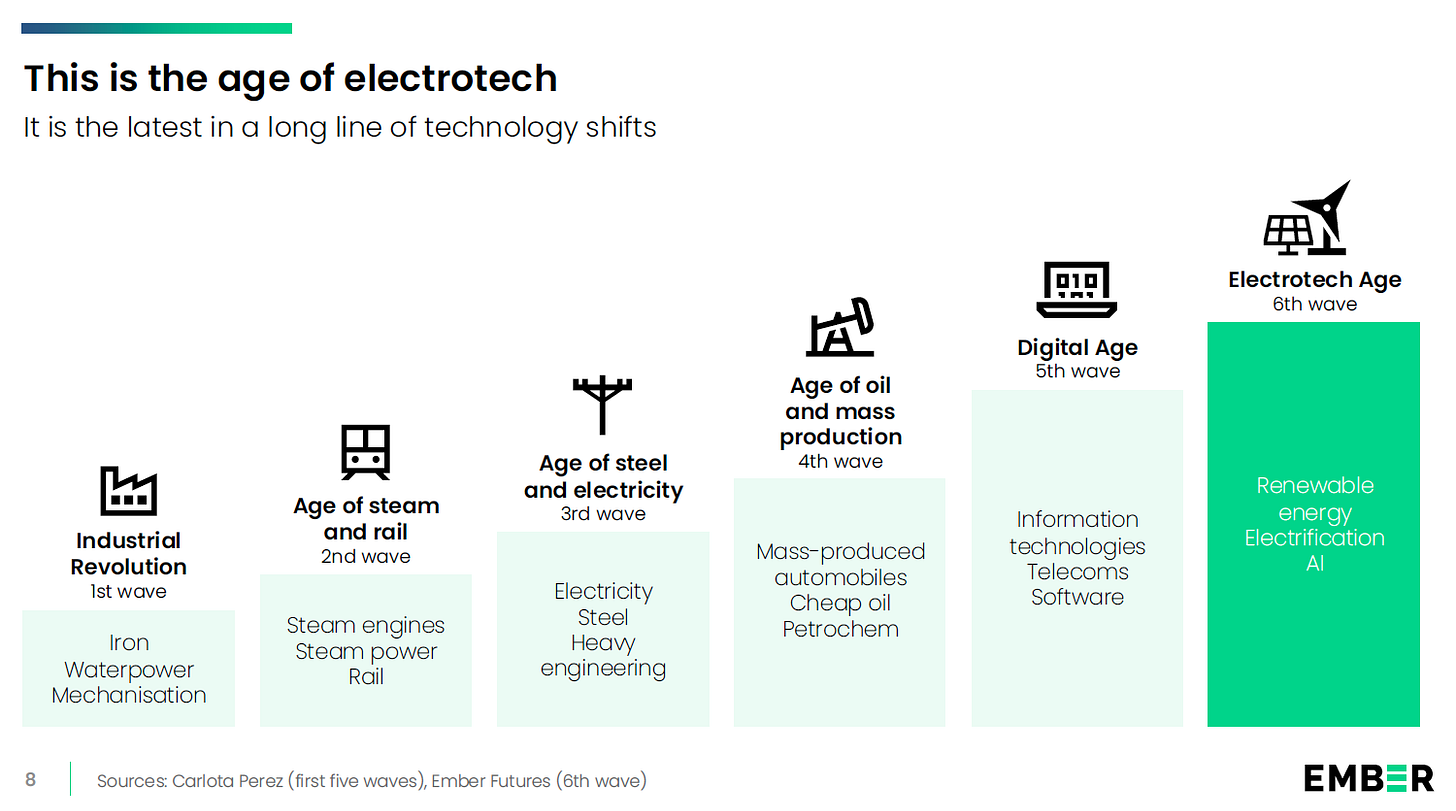
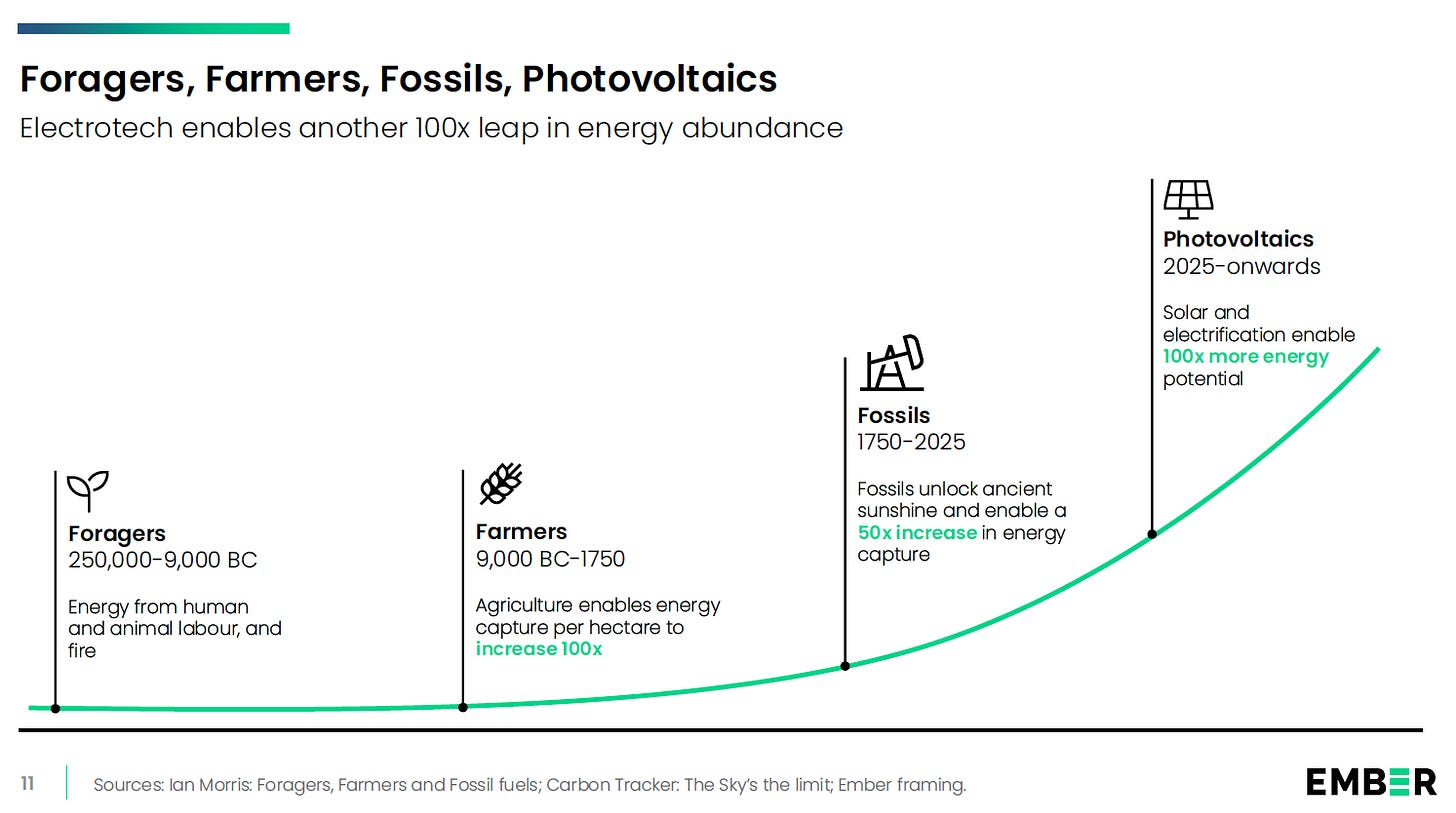
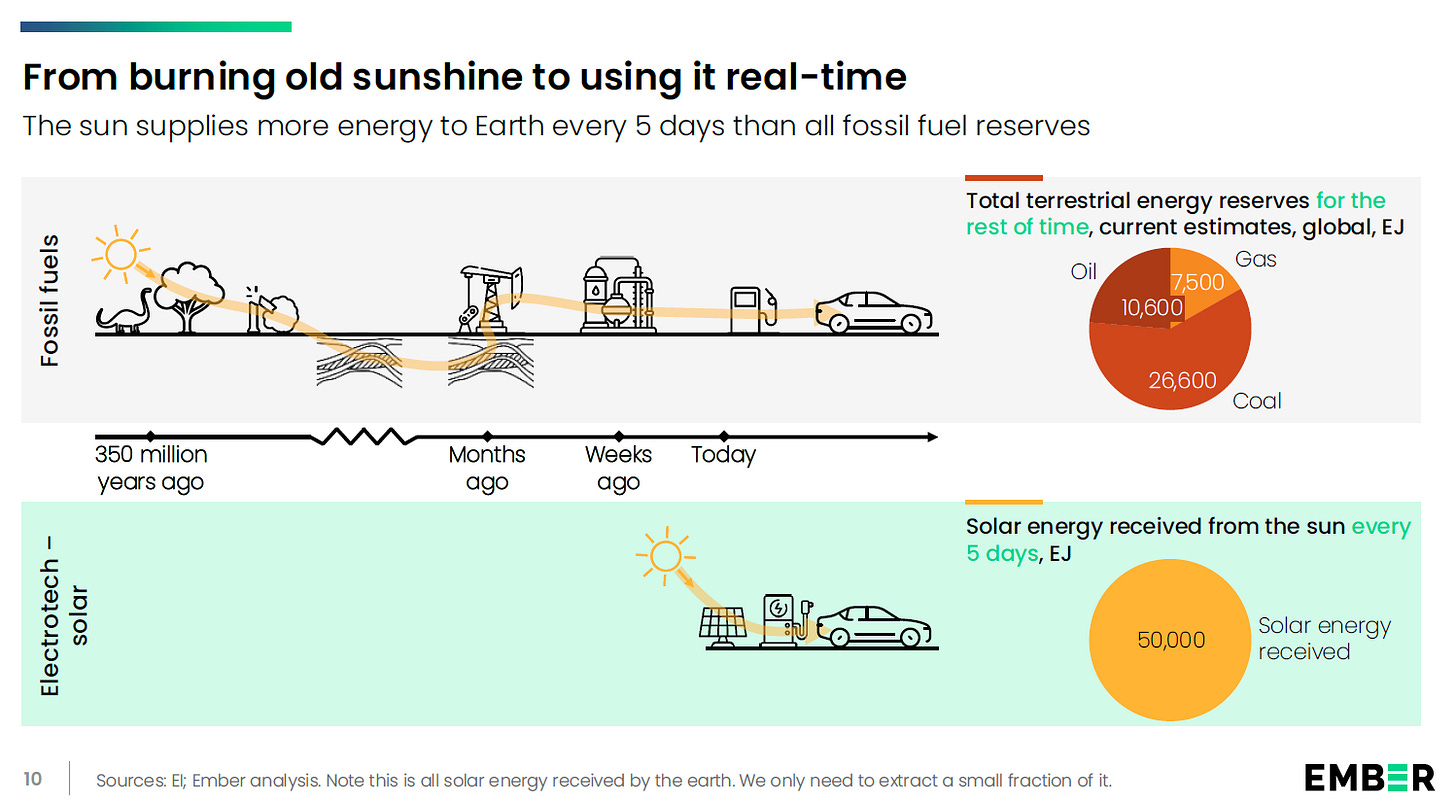
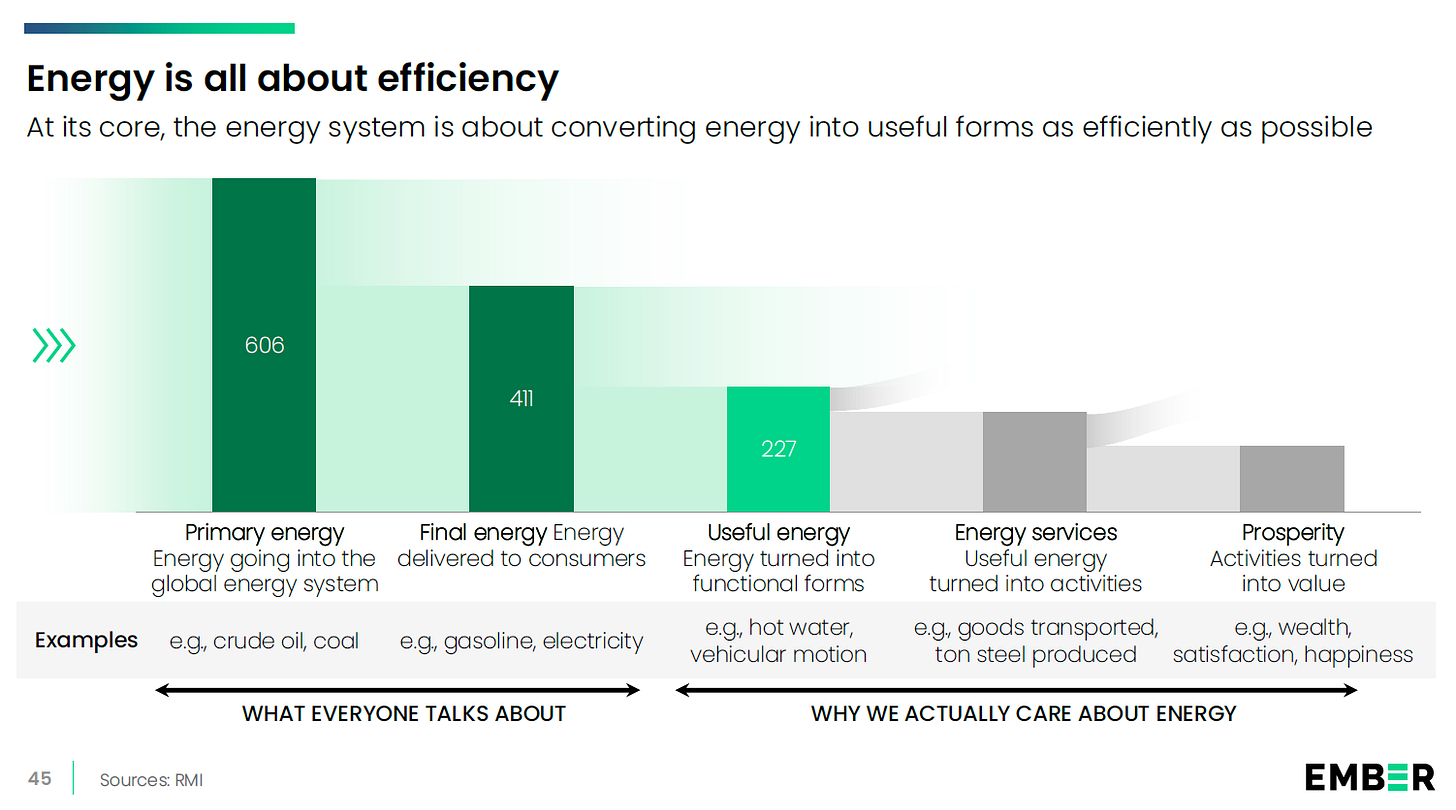
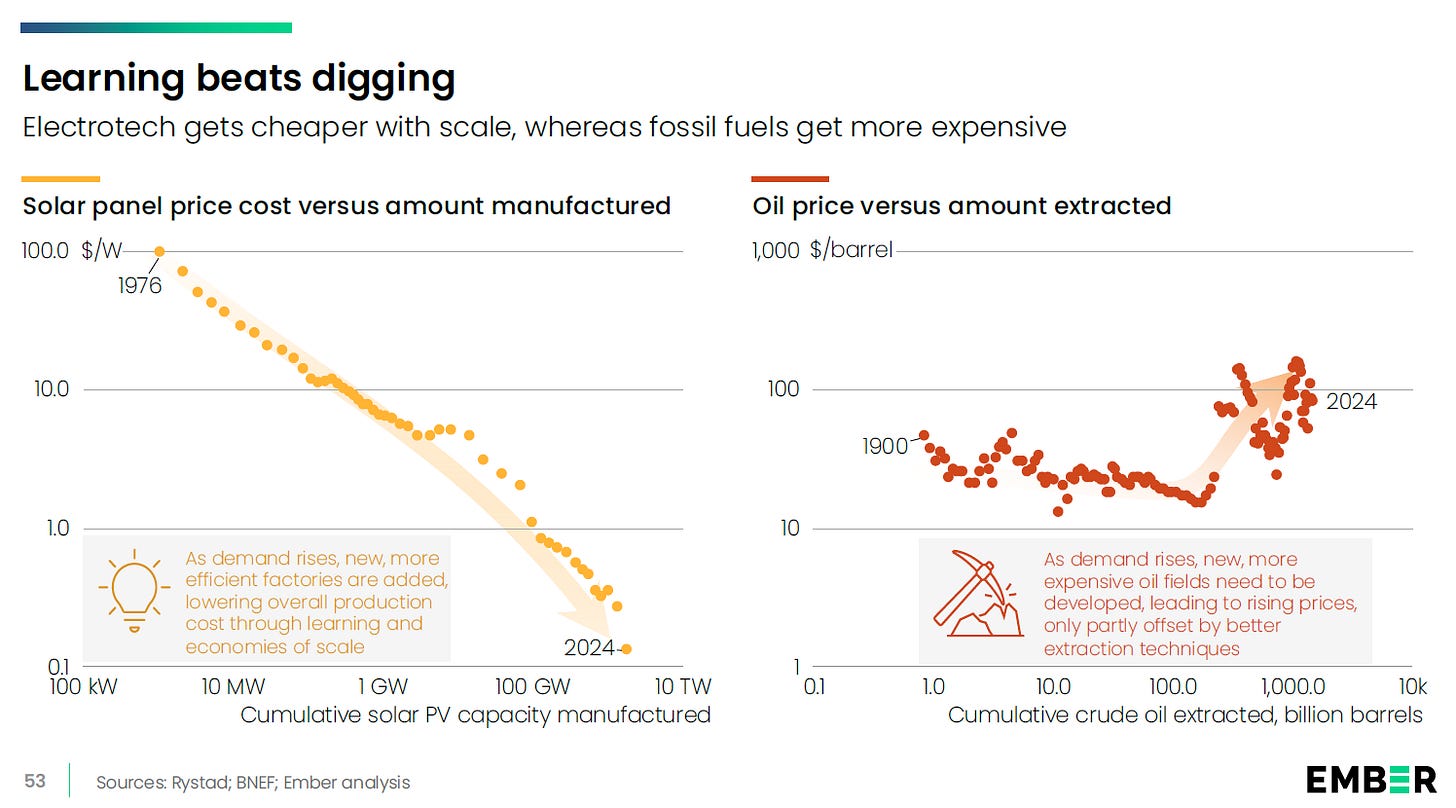
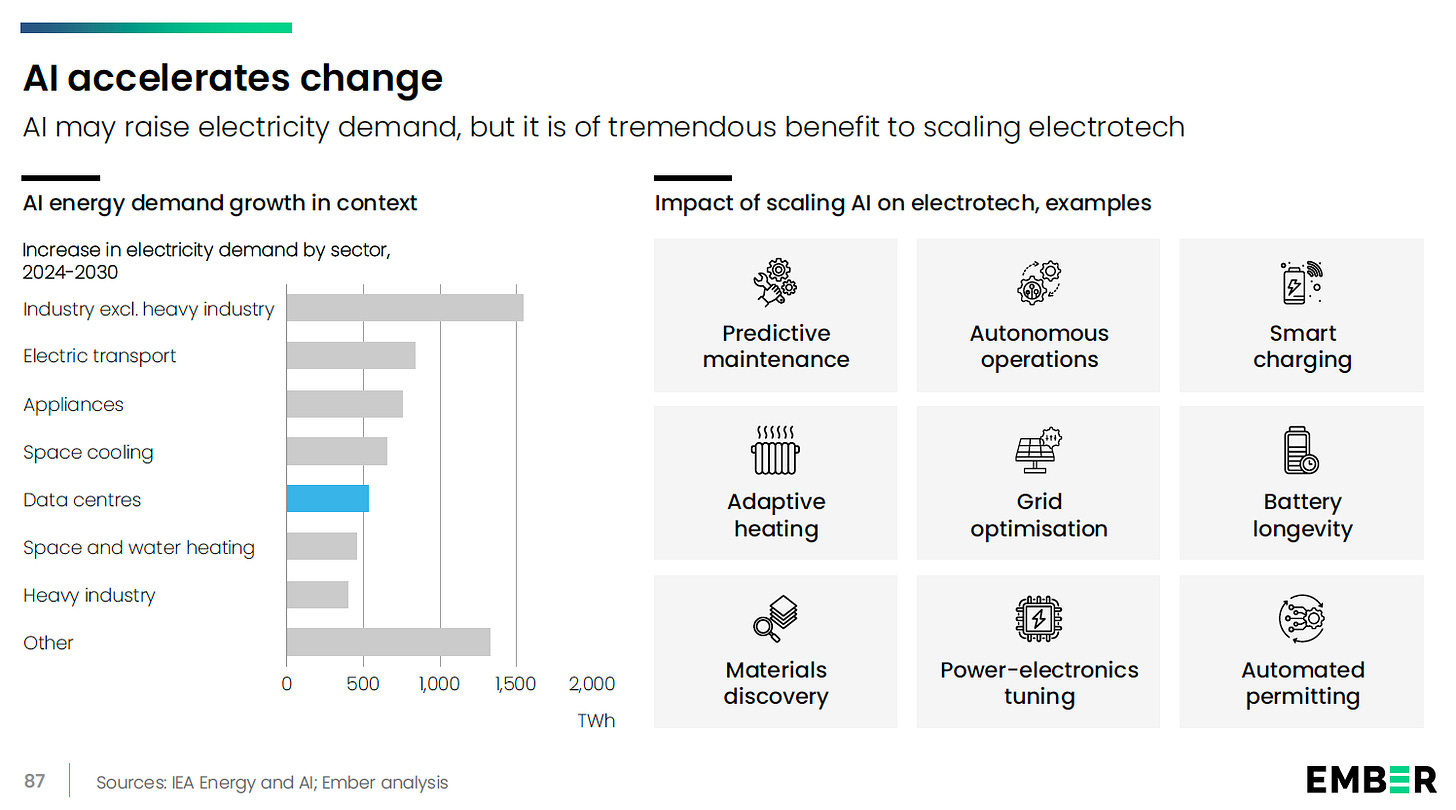
Great piece! I love Ember too. They had a piece over the summer about the cost of light that I loved https://ember-energy.org/latest-insights/the-long-march-of-electrification/
I also really enjoy all the "everything is sunlight" metaphors. Bill McKibben spoke about this recently, but this piece closed the loop for me. Coal = old fern sunlight, oil = old dinosaur sunlight, hydro = evaporation sunlight, wind = differential planet heating sunlight. Even uranium probably came from an exploding star somewhere.... :D
Have you guys considered how much more effective nuclear power will be on the grid and that solar does have a place but only off-grid where large capacity is not needed?